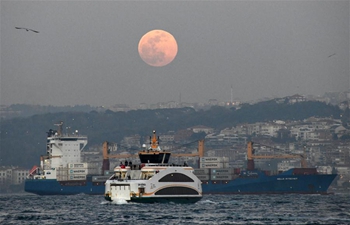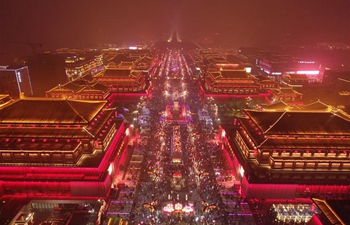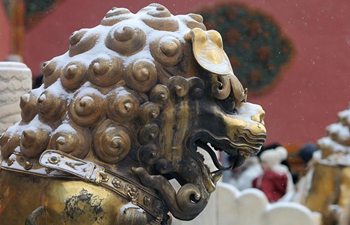PHNOM PENH, Feb. 20 (Xinhua) -- Cambodian Prime Minister Samdech Techo Hun Sen said on Wednesday that the country's economy is expected to grow by 7 percent in 2019 despite the ongoing threat of trade sanctions from the European Union.
The EU started last week the 18-month process that could lead to the temporary suspension of Cambodia's duty-free trading access to the EU market under the Everything But Arms (EBA) scheme due to concerns over human rights and labor rights in the kingdom.
"After achieving a 7.5 percent economic growth in 2018, we hope that Cambodia's economy will grow around 7 percent in 2019," Hun Sen said in a speech to about 11,000 garment factory workers in southern Kandal province.
The prime minister said the growth will still be driven by garment exports, tourism, construction and real estate and agriculture.
"We won't die, our country will move forwards with dignity and strength," he said.
Hun Sen said a series of precautionary measures including the cancellations of various fees and the reduction of electricity tariffs had been taken to support exporters in case the EU stripped the EBA trade preferences.
"We won't leave any factories to be shut down," he said. "With these measures, if it's required to pay tariffs, our exporters are still capable of paying tariffs for exporting their products to this or that market."
Cambodian Ministry of Commerce Secretary of State Sok Sopheak said last Friday that these measures had helped reduce operating costs for exporters by about 200 million U.S. dollars per year.
EU is a key trading partner for Cambodia, especially for garment and footwear sector. As a Least Developed Country, Cambodia has enjoyed exports of all products, except arms and ammunition, to the EU market with zero percent tariff since 2001.
According to the Ministry of Commerce, the Southeast Asian nation exported products worth a total of 18 billion U.S. dollars in 2017, in which 7 billion U.S. dollars, or nearly 40 percent of the total amount, went to the EU market.
If the EBA is suspended, tariffs in the garment sector will increase by 12 percent, as those in the footwear sector will rise by eight to 17 percent.













